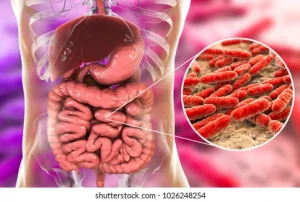
Diagnosed with Cancer? Your two greatest challenges are understanding cancer and understanding possible side effects from chemo and radiation. Knowledge is Power!
Learn about conventional, complementary, and integrative therapies.
Dealing with treatment side effects? Learn about evidence-based therapies to alleviate your symptoms.
Click the orange button to the right to learn more.
- You are here:
- Home »
- Blog »
- side effects ID and prevention »
- Chemotherapy-induced Diarrhea
Chemotherapy-induced Diarrhea

Chemotherapy-induced Diarrhea. A side effect so common that it is expected and almost taken for granted. Yet, like most other short-term side effects that resolve once chemo stops, according to research, one-third of the 82% of the cancer patients who develop chemo diarrhea develop severe diarrhea.
First and foremost, it is important to remember that the more chemo you undergo, the greater your risk of severe diarrhea. Or to put this another way, the more toxicity your body has to manage, the greater the patient’s risk of side effects.
Further, if, like the first study linked and excerpted below explains, chemotherapy both upsets the cancer patient’s delicate intestinal flora and if chemotherapy damages the intestinal lining itself, the patient not only will experience diarrhea but perhaps experience severe diarrhea.
As I was researching this post it occurred to me that chemotherapy-induced diarrhea was yet another side effect that could be treated with probiotics before, during and after chemotherapy. If effect diarrhea was another reason for “pre-habilitation.” Another reason to prepare your body for chemotherapy.
To learn more about diarrhea as well as other short-term side effects read the posts linked below.
- Short-Term Side Effects – Chemotherapy, Radiation
- Myeloma – Probiotics as Therapy
- Multiple Myeloma Side Effects- Learn, Anticipate, Prevent
- “Serious Adverse Events” – Low-dose Revlimid Maintenance
Are you a cancer patients struggling with chemotherapy-induced diarrhea? Are you a cancer survivor struggling with chronic diarrhea? Scroll down the page, post a question or comment and I will reply to you ASAP.
Hang in there,
David Emerson
- Cancer Survivor
- Cancer Coach
- Director PeopleBeatingCancer
Chemo diarrhea: Causes, prevention, and treatment
“Diarrhea is a common side effect of chemotherapy. It can cause dehydration and malnourishment, making a person feel sick and potentially intensifying other chemo-related side effects.
A 2007 Current Oncology paper estimates that as many as 82% of peopleTrusted Source undergoing chemoexperience diarrhea, with one-third developing severe diarrhea…
Researchers have proposed several reasons that chemo might cause diarrhea.
For example, certain chemo agents — especially those targeting colorectal cancer and other cancers of the digestive system — may damage the internal surface of the digestive tract, thereby leading to diarrhea.
A 2017 studyTrusted Source in rats found that the drugs 5-fluorouracil, oxaliplatin, and irinotecan could damage the digestive tract, potentially explaining why people experience diarrhea when using these drugs.
Chemo may also upset the delicate balance of bacteria and other organisms that help a person digest their food and have normal bowel movements.
One 2019 meta-analysis of 13 randomized controlled trials found a reduction in diarrhea among people undergoing chemo who took probiotics before or during treatment. This suggests that intestinal bacteria damage plays a role in chemo diarrhea…”
Can probiotics help against diarrhea?
“Probiotics can make diarrhea go away about one day faster. Generally speaking, probiotic products – which mostly contain certain lactic acid bacteria – are well tolerated.
Research on the effects of probiotics
To find out how well probiotics help against acute diarrhea, researchers from the Cochrane Collaboration analyzed relevant studies in this area. They found 63 studies looking at the effectiveness of probiotics for acute diarrhea. Just overAbout 8,000 people took part in these studies.
Most of the participants were children whose diarrhea lasted less than two weeks. They took probiotics in various forms, such as yogurts, milk, special infant formula, as a powder or in capsules.
-
Probiotics can make diarrhea go away faster
The research showed that probiotics help: They shortened the illness by one day on average. In some studies, researchers counted how many of the people had no more diarrhea after three days:
-
Without treatment: About 34 out of 100 people who didn’t take probiotics were diarrhea-free after three days.
-
With treatment: About 55 out of 100 people who took probiotics were diarrhea-free after three days.
In other words, probiotics made the diarrhea go away faster in 21 out of 100 people.
But it isn’t clear whether some probiotic foods and products are more effective than others. So there may be differences between yogurt, capsules and powder, or between lactic acid bacteria and other microorganisms.
-
- A prospective, interventional, randomized, double-blind, placebo-controlled clinical study to evaluate the efficacy and safety of Bacillus coagulans LBSC in the treatment of acute diarrhea with abdominal discomfort
- “Purpose: Increasing resistance towards antibiotics has augmented the use of probiotics for the treatment of diarrhea and associated symptoms. Probiotics are active microorganisms which exert some health benefits when consumed in the right amount. This randomized, double-blind, placebo-controlled clinical trial was conducted on 60 “intention to treat” subjects to evaluate the safety and efficacy of probiotic preparation Lactic Acid Bacillus (LAB containing active ingredient Bacillus coagulans strain LBSC) for the treatment of acute diarrhea with abdominal discomfort.
- Methods: The Test-A arm (n = 30) was on B. coagulans LBSC [2 billion/g] and Placebo-B arm (n = 30) was on the carrier. The primary outcomes were the time to last unformed stool (TTLUS), number of unformed stools, change in severity of abdominal pain, time to complete resolution of abdominal discomfort, complete remission of diarrhea, and quality of life (QoL). The secondary outcomes were physical examination and vitals, hematological analysis, and assessment of reported adverse events (AEs) or serious adverse events (SAEs).Results: Trial data showed that the LAB was well-tolerated by participants at the dose provided. The LAB was effective in recovering from acute diarrhea with abdominal pain and discomforts and exhibited improved cluster of QoL. No AEs or SAEs were reported during the trial.Conclusions: It is evident that the test drug, i.e., LAB (B. coagulans strain LBSC) is safe and effective for improving the pathophysiological conditions related to acute diarrhea and abdominal discomfort evaluated through stage-II clinical trial.


